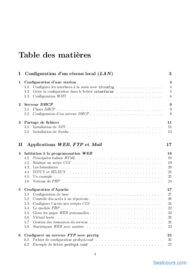

The system administrator can create as many other chains as desired. Predefined chains have a policy, for example DROP, which is applied to the packet if it reaches the end of the chain. There are five predefined chains (mapping to the five available Netfilter hooks), though a table may not have all chains. The origin of the packet determines which chain it traverses initially. Packets start at a given box and will flow along a certain path, depending on the circumstances. the point that was jumped from is remembered.) Every network packet arriving at or leaving from the computer traverses at least one chain. A rule in a chain can cause a goto or jump to another chain, and this can be repeated to whatever level of nesting is desired. Packets are processed by sequentially traversing the rules in chains. Each table is associated with a different kind of packet processing. Iptables allows the system administrator to define tables containing chains of rules for the treatment of packets. Iptables superseded ipchains and the successor of iptables is nftables, which was released on 19 January 2014 and was merged into the Linux kernel mainline in kernel version 3.13. x_tables is the name of the kernel module carrying the shared code portion used by all four modules that also provides the API used for extensions subsequently, Xtables is more or less used to refer to the entire firewall (v4, v6, arp, and eb) architecture.

The term iptables is also commonly used to inclusively refer to the kernel-level components. It may also be found in /sbin/iptables, but since iptables is more like a service rather than an "essential binary", the preferred location remains /usr/sbin. On most Linux systems, iptables is installed as /usr/sbin/iptables and documented in its man pages, which can be opened using man iptables when installed. Iptables requires elevated privileges to operate and must be executed by user root, otherwise it fails to function. Different kernel modules and programs are currently used for different protocols iptables applies to IPv4, ip6tables to IPv6, arptables to ARP, and ebtables to Ethernet frames. The filters are organized in different tables, which contain chains of rules for how to treat network traffic packets. Iptables is a user-space utility program that allows a system administrator to configure the IP packet filter rules of the Linux kernel firewall, implemented as different Netfilter modules.


 0 kommentar(er)
0 kommentar(er)
